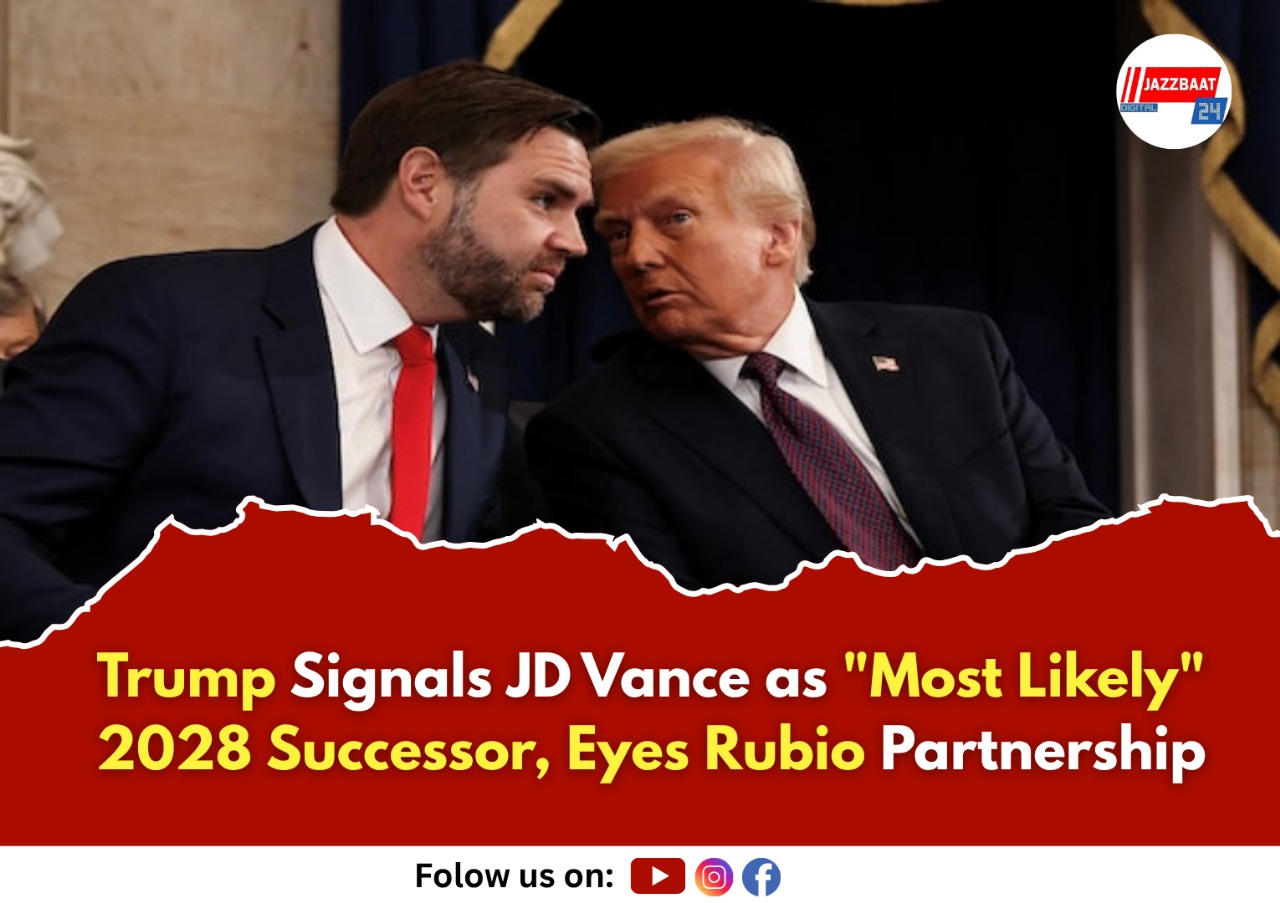
President hints at Republican ticket combination while maintaining it's "too early" to make official endorsement
US President Donald Trump has given his clearest indication yet that Vice President JD Vance stands as the frontrunner to lead the Republican Party in 2028, while also floating the possibility of Secretary of State Marco Rubio joining forces for a future presidential ticket.
Speaking to reporters at the White House on Tuesday, Trump responded affirmatively when asked whether Vance represents the heir apparent to his Make America Great Again movement. "Well, I think most likely," Trump said. "In all fairness, he's the vice president."
The 79-year-old president's comments mark the furthest he has gone in backing Vance as a potential successor, though he maintained some flexibility in his assessment. "I also think we have some incredible people on the stage right here," Trump added. "So it's too early obviously to talk about it, but certainly he's doing a great job and he would be probably favorite at this point."
Trump also suggested that Vance and Rubio could collaborate on a future Republican ticket. "I think Marco is also somebody that maybe would get together with JD in some form," he noted, highlighting both men's roles in his administration.
The endorsement carries significant weight given Trump's continued influence over the Republican base. Any signal of his support for a 2028 candidate could substantially impact the primary race, even though it remains years away.
Vance, 40, has carved out a prominent role in the Trump administration since taking office. The former Ohio senator and one-time Marine has served as a key diplomatic figure and domestic policy advocate, representing the administration both at home and abroad. His selection as Trump's running mate in 2024 came after he embraced Trump's economic populist agenda, despite being a former critic.
This represents a notable shift from Trump's previous stance on succession planning. In February, just weeks after his inauguration, Trump declined to name Vance as his successor, saying it was premature to make such determinations. At that time, he described Vance as "very capable" but insisted it was "too early to name him as the leading candidate."
Rubio, meanwhile, has emerged as a significant figure in Trump's foreign policy apparatus. The former Florida senator holds the unique distinction of serving as both Secretary of State and National Security Adviser, the first person to hold both roles simultaneously since Henry Kissinger.
The discussion of succession comes as Trump faces constitutional term limits that would prevent him from seeking reelection in 2028. However, the president has previously hinted at exploring potential "loopholes" for a third term, though constitutional scholars widely dismiss such possibilities.
Trump's comments suggest he recognizes the importance of maintaining continuity for his political movement beyond his presidency. Both Vance and Rubio represent younger faces who could potentially carry forward Trump's agenda while appealing to different segments of the Republican coalition.
As the 2028 race remains distant, Trump's early signals provide the first glimpse into how he envisions the future of the party he has reshaped over the past decade.